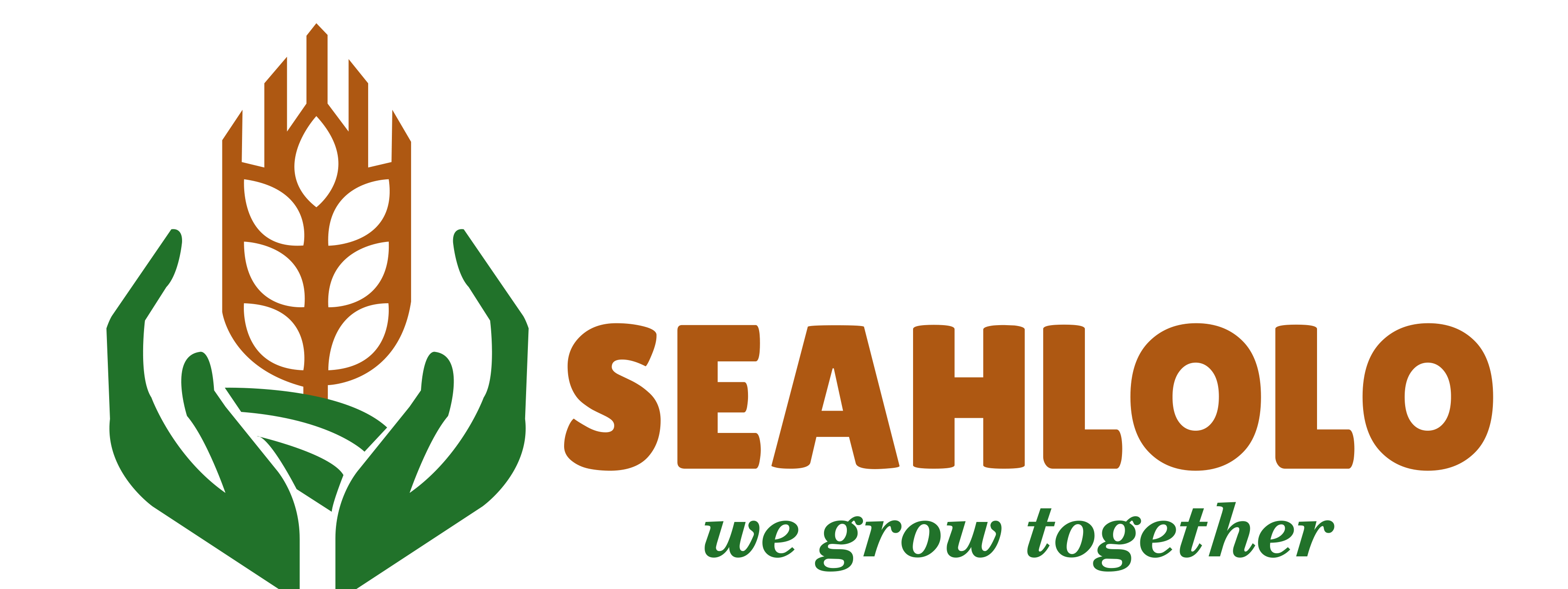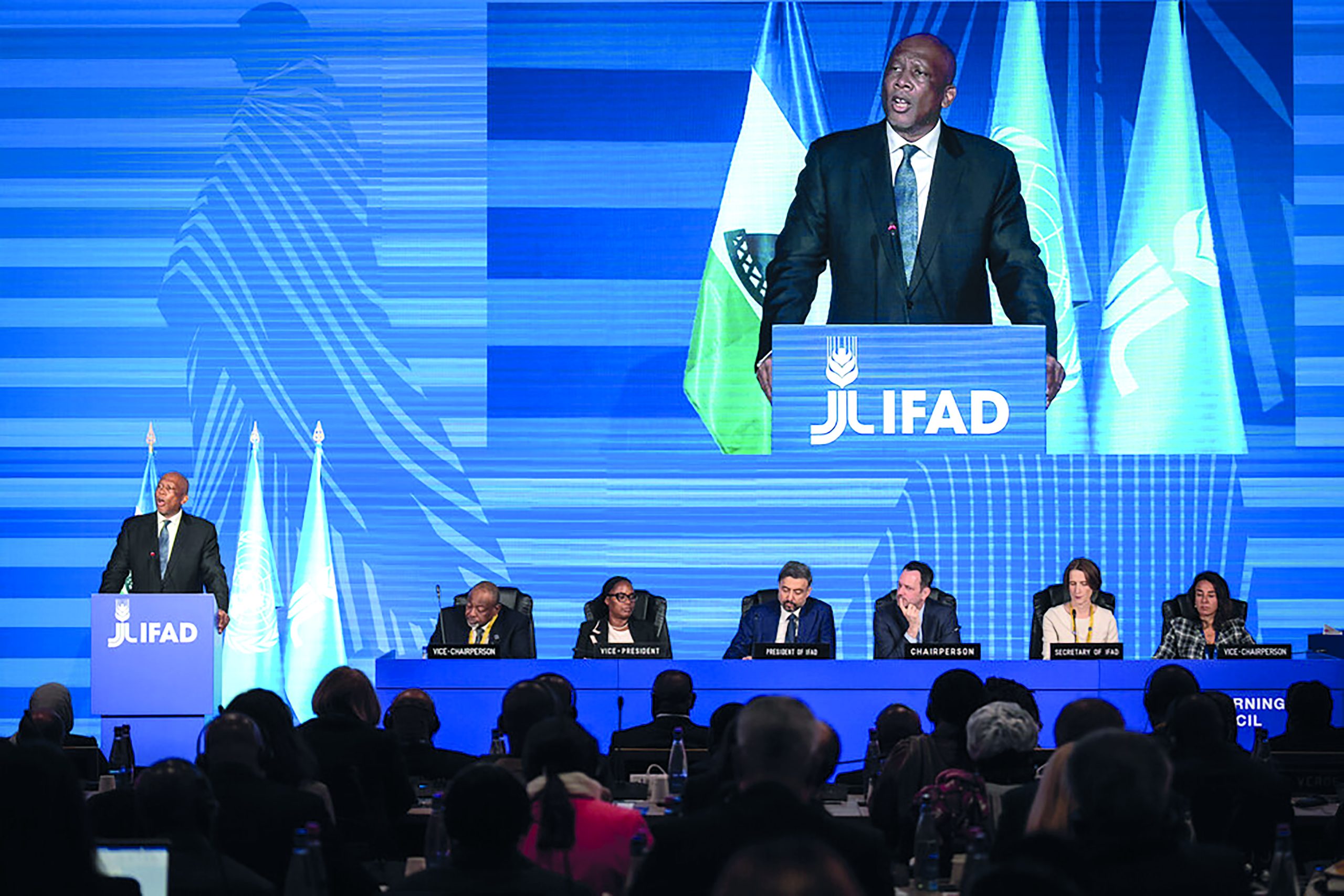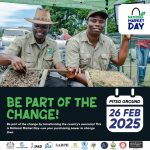![]()
As the world faces growing economic uncertainty and the devastating impacts of climate change, global leaders gathered at the 48th Governing Council of the International Fund for Agricultural Development (IFAD) on 12 February 2025, emphasised the urgent need to invest in rural communities to achieve food security, economic stability, and long-term growth.
With nearly half of the world’s 8.2 billion people living in rural areas of developing countries—many of whom struggle with hunger and poverty—leaders stressed that the key to reducing global inequality lies in supporting the smallholder farmers who produce 70% of the food consumed in low- and middle-income nations.
“Stabilising rural communities through investments in their productivity and economies is a major step toward achieving food security and economic growth,” said Alvaro Lario, President of IFAD, during his opening remarks, noting at the core of their work is the recognition that small farmers are business owners who need better technology, working capital, and access to markets, just like any other enterprise.
The High Cost of Malnutrition: Lesotho’s King Urges Political Will
In his keynote address, His Majesty King Letsie III—the African Union’s Champion for Nutrition—highlighted the staggering social and economic costs of malnutrition, calling it a long-term drain on both developing and developed countries.
He revealed that African nations lose between 1.9% and 16.5% of their annual GDP due to child undernutrition alone.
“The overarching purpose of these investments should be to break the inter-generational cycle of poverty and malnutrition and to create sustainable food systems that provide healthy diets,” the King emphasised, urging countries to allocate a greater share of their national budgets to nutrition.
His call to action resonates deeply with Lesotho’s challenges, where smallholder farmers form the backbone of the agricultural sector but remain vulnerable to climate shocks and economic instability.
He emphasised that investing in rural areas not only builds resilience but also drives economic growth, ensuring that communities can thrive despite mounting challenges.
The ‘First Mile’ Approach: Agriculture as a Catalyst for Poverty Reduction
Leaders at the council repeatedly emphasised the importance of focusing on the “first mile”—the starting point of food production—when designing agricultural investments.
Studies show that economic growth in agriculture is up to three times more effective at reducing poverty compared to growth in other sectors, and this figure climbs to 11 times in sub-Saharan Africa.
“Rural economies are the backbone of Sierra Leone’s economy, yet they are the most affected by climate change and economic shocks,” Julius Maada Wonie Bio, President of Sierra Leone shared.
Adding, “But with the right support, rural communities have the potential to sustain themselves and drive national growth.”
Similarly, Giancarlo Giorgetti, Italy’s Minister for Economy and Finance, commended IFAD’s focus on rural communities citing, “IFAD’s commitment to the ‘first mile’ is critical. It’s where real change can be made—by empowering those who grow our food and protect our ecosystems.”
The Climate Crisis and Its Impact on Rural Communities
Climate change remains a looming threat to food security, particularly in regions like Africa where smallholder farmers depend directly on the land. Droughts, floods, and unpredictable weather patterns continue to erode farming communities’ resilience, making climate-smart investments more critical than ever, Muhammad Al Jasser, President of the Islamic Development Bank said, calling for innovative financing solutions to support rural development.
“To scale impact, we must deepen collaboration and mobilise concessional financing to de-risk rural investments and attract private sector participation,” he stated.
He noted that the reality is stark; “without urgent action, climate change could push millions more into poverty and hunger.”
Leaders stressed the importance of scaling up climate-resilient agriculture and empowering farmers with tools and knowledge to adapt.
Global Alliances for Food Security and Poverty Reduction
The IFAD Governing Council also hosted a special session featuring the Global Alliance Against Hunger and Poverty, highlighting the power of partnerships in tackling food insecurity.
Janja Lula da Silva, First Lady of Brazil, praised the alliance’s collaborative approach.
“We can put together knowledge, policies, and funding to create transformative solutions. By working together, we can fight hunger, reduce poverty, and strengthen resilience,” she affirmed.
This collective spirit was echoed throughout the council, with leaders calling for stronger international cooperation and a commitment to align policies, financing, and action toward shared goals.
Lesotho’s Role in the Global Nutrition Agenda
Lesotho, under King Letsie III’s leadership, has been at the forefront of promoting nutrition as a cornerstone of sustainable development. As a landlocked country vulnerable to climate extremes, Lesotho’s focus on building resilient food systems is not only a national priority but also a regional imperative.
The King emphasised that nutrition investments go beyond feeding communities—“they’re about building strong, stable economies.”
“Every dollar spent on nutrition generates a return of USD23 in improved health, education, and economic productivity,” he noted, citing global studies.
Lesotho’s partnership with organisations like IFAD has enabled the country to implement climate-smart agricultural practices, improve smallholder productivity, and strengthen food security—all while promoting community-led development.
A Global Path Forward: Investing in the Foundations of Stability
The message from the 48th IFAD Governing Council was clear: rural communities are at the heart of global food security, poverty reduction, and economic growth. Investing in smallholder farmers—who feed billions globally—offers one of the most effective pathways to reducing inequality, stabilizing economies, and building climate resilience.
However, the leaders stressed that achieving this requires bold political will, innovative financing, and strong partnerships that span governments, multilateral organizations, and the private sector.
As King Letsie III aptly stated, “Ending hunger and malnutrition is not just a moral obligation—it is an economic imperative. If we invest in our rural communities today, we build a more stable, prosperous world for generations to come.”




